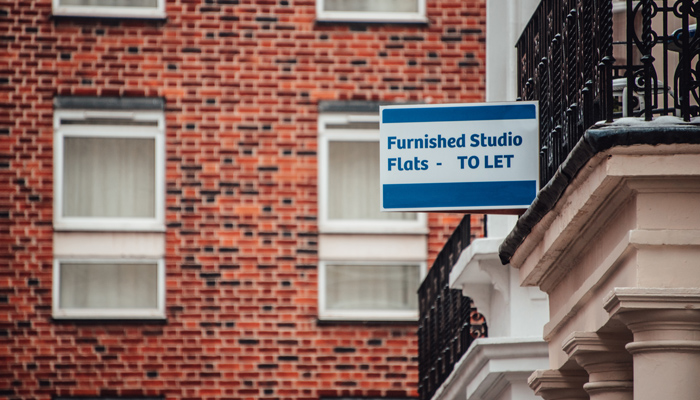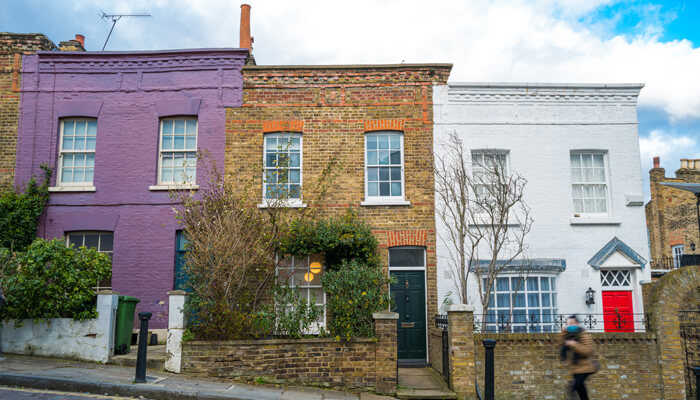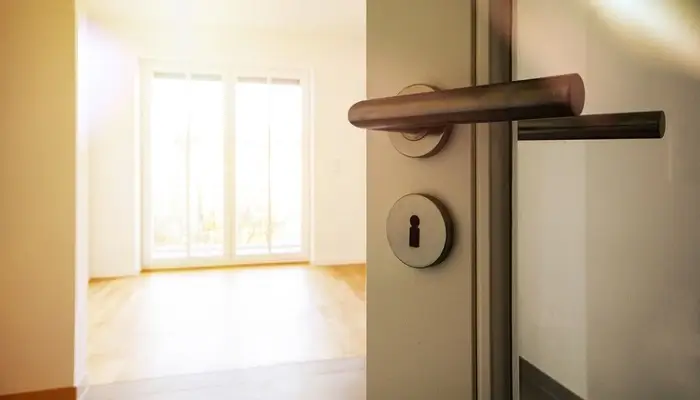Is The Landlord or Tenant Responsible for Buildings Insurance?
Renting out a property or finding your next home to rent comes with its fair share of questions, especially when it comes to who's responsible for insuring the building. Buildings insurance is all about keeping the property's structure safe from damage, like a safety net for the bricks and mortar of your investment or home. But who should be taking out the policy, the landlord or the tenant?
In this guide, we're cutting through the confusion to lay out the facts about buildings insurance in the rental world. It's important for both landlords and tenants to know where they stand, ensuring that the property, and everyone's peace of mind, is well-protected. Here, we’ll explain the essentials of buildings insurance, making sure you've got the knowledge you need for a secure rental experience.
Understanding buildings insurance
When you're involved in a property rental, whether as a landlord or a tenant, buildings insurance is a term you'll hear thrown around quite a bit. Simply put, buildings insurance is designed to protect the physical structure of a property and its permanent fixtures from damage. This means if disaster strikes in the form of .
Luckily, buildings coverage forms an essential pillar of landlords insurance. If you’re a landlord, making sure you have insurance in place can save you from unexpected financial hits.
What does buildings insurance typically include?
Buildings insurance is all about the big stuff. Essentially, the aspects of your property that would be costly to repair or rebuild. Coverage usually includes damage from:
- Fire and smoke damage
- Storms and floods
- Falling trees or branches
- Vandalism (check the small print as this often doesn't extend to intentional damage caused by tenants themselves although specialist cover may be available on request)
Buildings insurance is a shield for the structure of your building, making sure that if the worst happens, your property can be restored without plunging you into financial
What doesn’t buildings insurance cover?
No insurance policy is without its exclusions, and buildings insurance is no different. Common things that aren't covered include:
- General wear and tear over time
- Any intentional damage you cause to the property
- Damage from pests like woodworm or mice
- Issues that come from poor maintenance or neglect
It’s vital to know the details of your policy. Understanding what’s not covered helps you take proactive steps to protect your property and manage risks that fall outside your insurance coverage.
Who fixes the property without buildings insurance?
If you don't have buildings insurance and your property is damaged, the responsibility for repairs falls squarely on the property owner's shoulders. This can lead to significant financial strain, especially if the damage is extensive. For landlords, not having this insurance could mean a hit to your income if the property becomes uninhabitable and tenants need to move out. For tenants, it could mean living in a damaged property until repairs are made by the landlord. Be aware that there may be variation according to the terms of any lease agreement in place for certain repairs.
Legal requirements and responsibilities
Legally, there's no blanket requirement forcing all property owners to have buildings insurance. However, if you have a mortgage on your property, lenders will typically require you to hold a policy. This is to protect their investment (as well as yours) against potential damage.
Understanding who is responsible for what is crucial when it comes to buildings insurance. Generally, the responsibility to insure the building itself falls to the landlord. This makes sense, as the landlord owns the property's structure and permanent fixtures. As well as optionally covering things like loss of rent and the need for alternative accommodation for tenants, landlords insurance covers you against risks to the property from events like fires, floods, and other disasters.
Tenants, on the other hand, have a different set of responsibilities. While the building's structure is the landlord's concern, tenants need to think about protecting their personal belongings. This is where contents insurance comes into play. Tenants' contents insurance covers personal items within the rental property, from electronics to furniture, against theft, loss, or damage. Additionally, tenants should also consider liability insurance to protect themselves against potential claims for damages caused by negligence.
Ultimately, ability to arrange insurance is based on insurable interest: i.e. the freeholder owns the property and will therefore need to arrange the cover. It is always important that a property owner seeks legal advice and arranges an appropriate lease or rental agreement which makes the responsibilities for landlords and tenants clear. Typically main structural repairs and overall safety will be the responsibility of the landlord, although they may - through the lease - make the tenant responsible for certain repair, maintenance and damage.
While buildings insurance isn’t legally required for all properties, it's often a necessity under mortgage agreements and always a wise precaution to protect your rental property. Landlords are typically responsible for insuring the building, while tenants should secure their belongings with their own insurance policies. Clear communication and understanding of these responsibilities can help ensure both parties are protected in most circumstances.
Insurance for landlords and tenants
In the rental world, no matter if you’re a landlord or a tenant, having protection is essential even if it’s not a legal requirement. Landlord insurance protects investments, offers peace of mind, and keeps things running smoothly for both parties.
Landlords insurance
Beyond the basic coverage for structural damage caused by serious events such as fire or storm, landlord insurance offers some vital options. Many people underestimate the risks of loss of rental income due to a property being unable to be occupied following insured damage: for example, your overheads to pay bank loans and mortgages will continue.
This includes loss of rent coverage, providing financial stability if the property becomes uninhabitable. Many people underestimate the risks of loss of rental income due to a property being unable to be occupied following insured damage: for example, your overheads to pay bank loans and mortgages will continue.
There is also property owners liability coverage, protecting landlords against claims for injuries occurring on the property. It's all about keeping you, your property, and your rental income safe and sound.
Tenants insurance
With some insurers, you can also add tenants’ liability cover. This helps protect you from any accidental damage to your landlord’s fittings, furniture and fixtures, but this will not cover general wear and tear, or if the damage that was caused is deliberate.
At Towergate, we understand the unique challenges faced by both landlords and tenants. We provide insurance solutions that meet the specific needs of each, meaning you have protection and peace of mind. From safeguarding your property investment to protecting your personal belongings, we're here to help find the right coverage for you.
Knowing your responsibilities as a landlord or tenant and keeping the lines of communication open are key to ensuring you and your property are protected. Landlords need to make sure their building is protected, while tenants shouldn’t overlook insuring their personal items. Reference to your legal advisor is recommended to ensure that the responsibilities for Landlords and tenants are clearly identified in rental or lease agreements.
Here at Towergate, you're supported every step of the way, making insurance clarity and peace of mind easily achievable. For detailed guidance and to get a quote online for landlords insurance or tenants insurance, explore your options with us. Together, we can make sure your rental journey is secure and seamless.
Landlord insurance from Towergate
We provide landlord insurance for a wide range of properties and tenants including multi occupancy, students, local authority placements, unoccupied and much more. See our landlords insurance page or call 0330 828 1709 for more.
About the author
 Alison Wild BCom (Hons), FMAAT, MATT, Taxation Technician is a highly respected industry professional who has been working with and advising SMEs in areas including tax, pensions, insurance and marketing for over 25 years. She is a member of the Association of Accounting Technicians (AAT) and Association of Tax Technicians (ATT) and also has 20 years' experience as a residential landlord.
Alison Wild BCom (Hons), FMAAT, MATT, Taxation Technician is a highly respected industry professional who has been working with and advising SMEs in areas including tax, pensions, insurance and marketing for over 25 years. She is a member of the Association of Accounting Technicians (AAT) and Association of Tax Technicians (ATT) and also has 20 years' experience as a residential landlord.
Date: March 07, 2024
Category: Landlords












